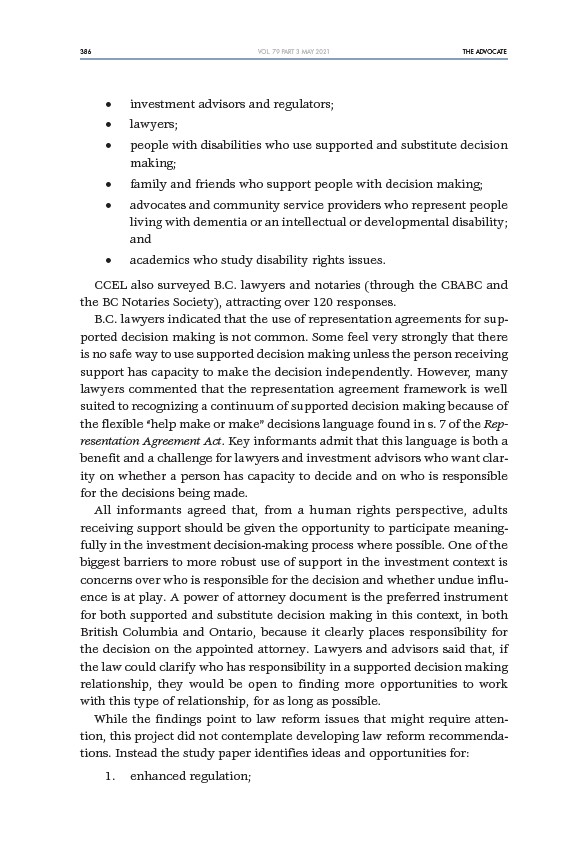
386 THE ADVOCATE
VOL. 79 PART 3 MAY 2021
• investment advisors and regulators;
• lawyers;
• people with disabilities who use supported and substitute decision
making;
• family and friends who support people with decision making;
• advocates and community service providers who represent people
living with dementia or an intellectual or developmental disability;
and
• academics who study disability rights issues.
CCEL also surveyed B.C. lawyers and notaries (through the CBABC and
the BC Notaries Society), attracting over 120 responses.
B.C. lawyers indicated that the use of representation agreements for supported
decision making is not common. Some feel very strongly that there
is no safe way to use supported decision making unless the person receiving
support has capacity to make the decision independently. However, many
lawyers commented that the representation agreement framework is well
suited to recognizing a continuum of supported decision making because of
the flexible “help make or make” decisions language found in s. 7 of the Representation
Agreement Act. Key informants admit that this language is both a
benefit and a challenge for lawyers and investment advisors who want clarity
on whether a person has capacity to decide and on who is responsible
for the decisions being made.
All informants agreed that, from a human rights perspective, adults
receiving support should be given the opportunity to participate meaningfully
in the investment decision-making process where possible. One of the
biggest barriers to more robust use of support in the investment context is
concerns over who is responsible for the decision and whether undue influence
is at play. A power of attorney document is the preferred instrument
for both supported and substitute decision making in this context, in both
British Columbia and Ontario, because it clearly places responsibility for
the decision on the appointed attorney. Lawyers and advisors said that, if
the law could clarify who has responsibility in a supported decision making
relationship, they would be open to finding more opportunities to work
with this type of relationship, for as long as possible.
While the findings point to law reform issues that might require attention,
this project did not contemplate developing law reform recommendations.
Instead the study paper identifies ideas and opportunities for:
1. enhanced regulation;